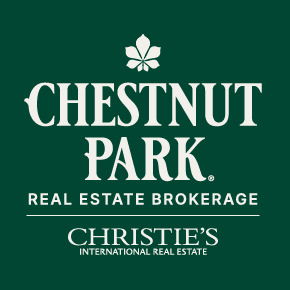There are thousands of available homes on MLS that may be perfect for you! Include your name and email address below to receive your custom list of new available homes in your desired neighbourhoods each morning. You will often receive new listings before they appear on other sites such as REALTOR.ca, giving you a head start with your search.

There were no surprises as to the market’s performance in July. There has been a consistent improvement both as to sales volumes and average sale prices since January. July saw the most dramatic year-over-year improvement. As compared to last year, sales volumes in the greater Toronto area increased by 18.4 percent, and the average sale price was 4.8 percent stronger than the average sale price last July.
In July 6,961 residential resale properties were reported sold in the greater Toronto area. Last year only 5,869 properties were sold. The average sale price came in at $782,129 as compared to $745,971 last July. The average sale price in the city of Toronto came in at $824,336, almost 6 percent higher than the greater Toronto average, notwithstanding that the bulk of the property sales responsible for this average sale price were condominium apartments.
For the first time since the introduction of the Ontario Fair Housing Plan measures, every housing type saw price increases as compared to last year, including detached properties. The average sale price for detached properties came in at $ 1,350,700, an increase of 3.6 percent. Semi-detached properties increased by 7.4 percent to $935,300, and condominium apartments continued their upward trajectory, coming in at $582,247, an increase of almost 10 percent. The average sale price for condominium apartments in Toronto’s central districts, where most sales take place (65 percent), came in at $653,137. Translated as the cost for space, central district condominium apartments are now selling for approximately $1,000 per square foot.
July also saw a recovery in the high-end of the market. The high-end of the market, primarily single-family properties, was dramatically impacted by the implementation of the 15 percent foreign buyer’s tax, the new mortgage stress testing, and three rate increases implemented by the Bank of Canada. For example, during the first 7 months of 2018, realtors reported that 1,247 properties having a sale price of $2 Million or more had sold. This number compares very poorly with the 2,625 similar properties that were reported sold over the same period last year, a negative variance of well over 50 percent.
In July this negative pattern was reversed. In July 181 properties having a sale price of $2 Million or more were reported sold. All but 16 of these properties were either detached (160) or semi-detached (5) properties. This compares favourably to the 149 similar properties that sold in July of last year, an increase of 21 percent. It should be noted that this improvement in sales volume is due to a combination of buyers adjusting to the various measures introduced by governments, increased mortgage rates and sellers accepting that their expectations as to the ultimate sale price of their properties had to be lowered. This is reflected in the fact that the average sale price came in at only 98 percent of asking price for detached homes, and in districts where Toronto’s most expensive properties are located, at only 96 percent. Even these figures are not entirely representative since they do not account for any price reduction from the original list price of these properties.
Inventory levels are a concern. Throughout 2018 they have been declining, particularly in the 416 regions. Of special concern are semi-detached properties and condominium apartments. In both categories, levels are now lower than they were last year at this time. In July there were only 329 active semi-detached properties available to buyers in Toronto, and only 2,583 condominium apartments. Last year there were 2,710 available and that figure was substantially less than the prevailing buyer demand. Due to these shortages, all semi-detached properties sold at 103 percent of their asking price. All condominium apartments sold at 100 percent of their asking price.
Going forward the lack of inventory (semi-detached and condominium apartments) will continue to put upward pressure on average sale prices, but that pressure will be limited. The increase in mortgage interest rates and the implementation of the new mortgage stress testing will limit buyers’ ability to stretch to higher prices as was the case last year. What should result is moderate increases in average sale prices and the number of residential resales. Increases should not exceed 3-5 percent until either interest rates decline, or we see substantial increases in wages and salaries.
Prepared by Chris Kapches, LLB, President and CEO, Broker, Chestnut Park® Real Estate Limited, Brokerage.
Have questions about the market or selling or buying?
Contact me any time. I’m happy to answer any questions you may have.

